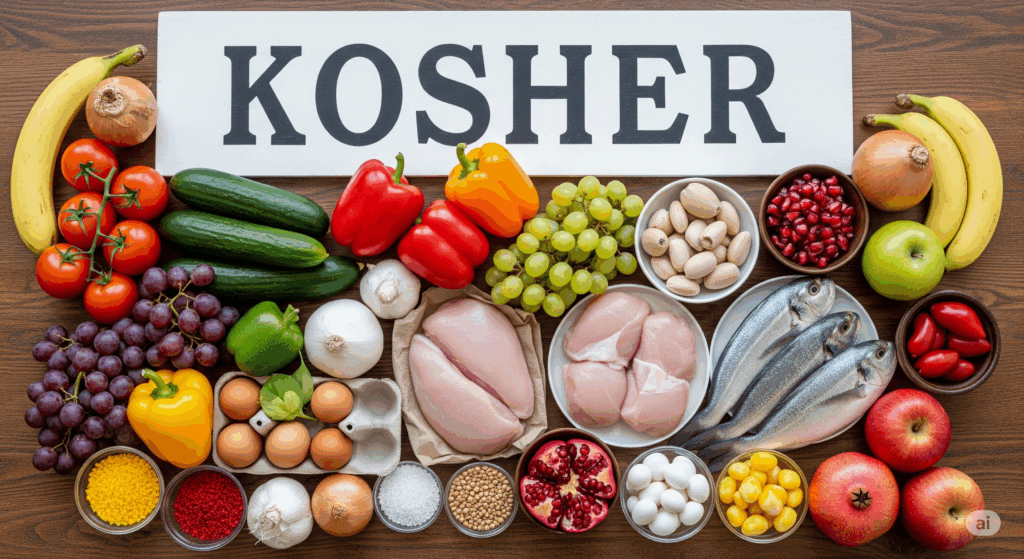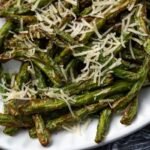By Rabbi Moshe Elefant, Chief Operating Officer of OU Kosher
Key takeaways:
Food manufacturers must anticipate and plan for upcoming regulatory bans on synthetic additives and volatile global trade policies that impact ingredient sourcing, especially for plant-based alternatives.
The increasing consumer demand for vegetarian, vegan, and allergy-friendly products necessitates careful ingredient selection and may be impacted by shifts towards animal-based alternatives due to regulatory changes or tariffs.
Kosher certification agencies offer valuable guidance, databases of certified ingredients, and expertise in sourcing plant-based alternatives, helping manufacturers navigate supply chain disruptions and meet diverse consumer dietary needs.
Tariffs and proposed regulatory changes that could ban some synthetic additives are among several factors creating uncertainty in the food supply chain today. While the whole sector faces potential ramifications, there are particular concerns for brands that serve the growing number of consumers with special dietary needs or preferences. Among these consumers are vegetarians, vegans, those with allergies and other health concerns, as many of the proposed changes may make it more difficult for brands to source non-animal-based ingredients. This is a key audience that many brands want to serve, as up to 63% of Americans report sticking to vegan or vegetarian options for at least some meals.
Recent proposed regulatory changes, intended to improve the health and safety of the food supply by banning certain synthetic additives or ingredients, will likely require brands to adjust their ingredients, manufacturing process, and sourcing of materials. These proposals come amid ongoing volatility in the global supply chain, as the U.S. re-evaluates its tariffs and trade policies with major ingredient-supplying nations, including China and Mexico. While recent agreements to avoid steep tariffs offer optimism, uncertainty remains, adding to the challenges brands face when sourcing suppliers and ingredients. In such an environment, plant-based products could become more difficult or expensive to find, presenting a challenge to manufacturers and brands that avoid or are especially selective about the use of animal products.
For example, one of the most significant regulatory proposals seeks to eliminate FD&C Red 40, a widely-used synthetic red food dye. If that is indeed banned, the most obvious substitute is a red dye called E120, derived from cochineal beetles, thus rendering products that use it off-limits for strict vegetarians and vegans, and risk making such products not appealing to many others simply because they contain insect-based ingredients.
Red 40 is not the only synthetic dye facing a ban; the FDA is considering similar policies regarding other dyes, including some of those used to make food blue, green and yellow, and several states have moved to stop the use of other synthetic food dyes. Like with Red 40, many of the most common natural alternatives are made from animal-based ingredients.
Another significant developing situation concerns the pricing and availability of vegetable-based glycerin, due to tariffs imposed on countries producing it. The rising prices will likely drive companies to look toward cheaper animal fat-based alternatives, as glycerin is a common ingredient used to preserve moisture and add texture and sweetness to many foods. But many of these do not meet vegetarian, vegan, and other consumer needs, including those of shoppers looking to reduce cholesterol or animal fat intake.
In order to deal with the changes in the food supply while continuing to meet consumer demand, food manufacturers need to start thinking about tomorrow and have a plan in place. They need to be prepared and know what to do if they need to make changes.
One source of help and guidance for food companies seeking to replace synthetic dyes or find new and affordable sources of ingredients amid the global trade volatility, is kosher certification companies, which oversee and certify the production of millions of products in the U.S. and around the world. More than 12 million U.S. consumers seek out at least some kosher-certified products each year, and many of them choose these products because kosher standards overlap with those of vegans, vegetarians, and those with allergies and health concerns.
In order to meet religious regulations, the kosher certification industry is well-versed in paying careful attention to even small traces of animal- or insect-based ingredients, and reflecting this in the language on its certification stamp. This comes from the fact that animals like insects and pigs are not kosher, and that many byproducts of such non-kosher animals are also not kosher, so kosher-certified products must ensure they are not used in manufacturing. Any animal or animal-byproduct that is certified kosher must come from a kosher animal, including chickens and cows, and be slaughtered according to religious laws. In addition, kosher laws prohibit the mixing of meat and dairy, so dairy products like cheese cannot contain additional animal-based components, like the commonly used rennet. In addition to labeling kosher products either “meat” or “dairy,” based on their ingredients, the kosher system also has an additional category called “pareve,” referring to foods that do not contain any meat or dairy, such that vegans and lactose-intolerant consumers can rest assured that products with a “parve” kosher certification do not contain any dairy ingredients.
Kosher certification agencies, including the Orthodox Union, the world’s largest certification agency, which I oversee, can help companies eliminate the use of animal-based ingredients. This includes helping companies identify, find, or even manufacture plant-based alternatives. The OU and others constantly monitor the global food chain, keeping track of which ingredients meet their standards and who can provide them. For example, the OU has a database of millions of ingredients available for food companies to use to find alternatives, including for the food dyes set to be banned, or for more affordable and accessible suppliers of plant-based glycerin and other ingredients whose supply is at risk from the new tariffs.
Rabbis who guide companies through the kosher certification process are experts on food ingredients and can work with companies to provide advice and make plans for what ingredients or alternative suppliers food companies can use — not just to meet kosher requirements, but also to comply with regulations and meet changing market conditions. In addition, if a food manufacturer has identified a new or alternative ingredient or supplier, these rabbis can work with them to get that ingredient certified kosher, opening up new options that better meet current or future needs, including those of vegan and vegetarian consumers.
The key to brands navigating the current uncertainty is to plan ahead and understand their options. Kosher certification agencies are among those prepared to help ensure that the food supply chain adapts as needed and consumers with special dietary needs of all kinds continue to be able to purchase foods that meet their dietary requirements.
 Rabbi Moshe Elefant is the Chief Operating Officer of OU Kosher. As an industry expert, Rabbi Elefant oversees the certification and monthly inspection of 13,000 plants in 105 countries.
Rabbi Moshe Elefant is the Chief Operating Officer of OU Kosher. As an industry expert, Rabbi Elefant oversees the certification and monthly inspection of 13,000 plants in 105 countries.




